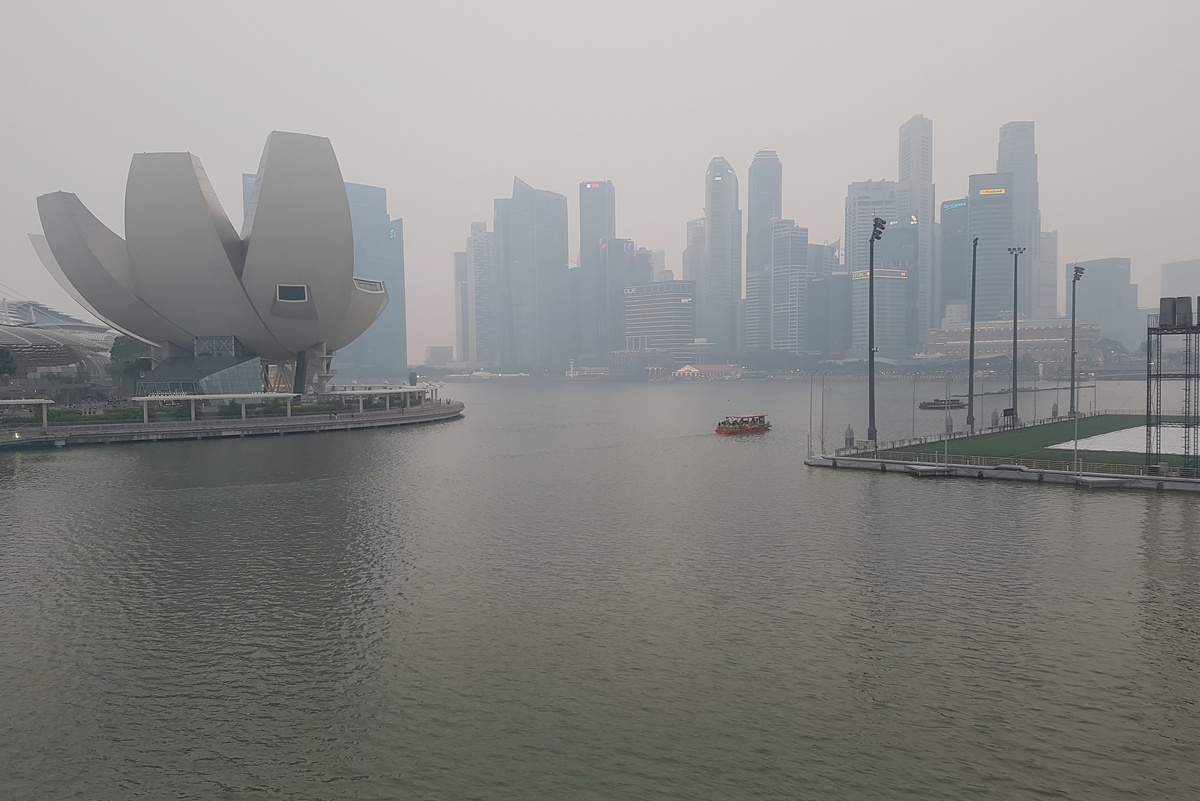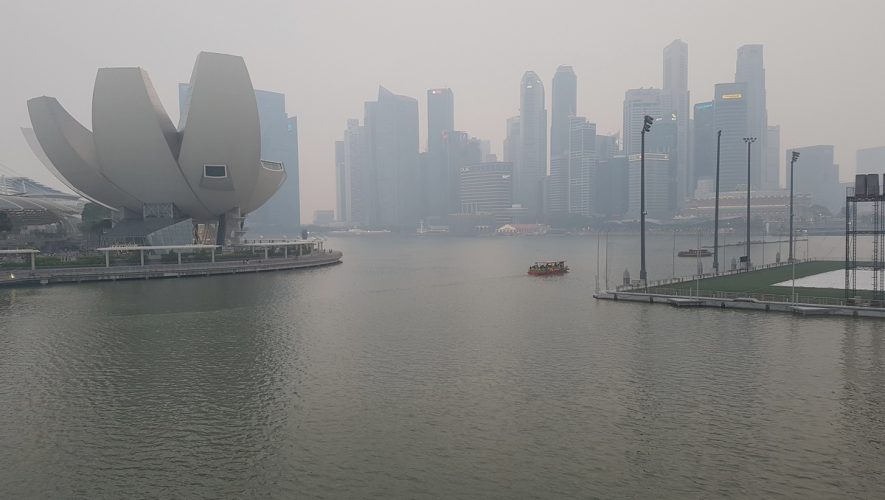
A publicity and business engagement campaign led by local non-government organisation People’s Movement to Stop Haze (PM.Haze) is to launch in the new year with a bold ambition: Make Singapore the first country in the world to use only sustainable palm oil.
Palm oil is the crop most heavily blamed for the peatland forest fires in Indonesia—known locally as the haze—that choke Singapore and its neighbours with toxic smoke caused by slash-and-burn forestry to prepare plantations that rages almost every dry season.
PM.Haze’s campaign was inspired by the English city of Chester, which declared itself in March to be the first city to use 100 per cent sustainably sourced palm oil, grown free from deforestation, forest fires and the human rights violations that have long plagued the sector.
The campaign, which is being supported by a number of organisations including palm oil grower Wilmar, will start with a research mission to find out what sorts of oil Singapore’s food and beverage sector uses. An estimated 97 per cent of all Singapore eateries use palm oil for cooking, according to the NGO’s executive director Benjamin Tay.
The initial focus of the campaign will be on cooking oil, the only product type that promotes the sustainability of its palm oil content on the label in retail stores in Singapore. Some consumer brands are reluctant to draw attention to their products containing any palm oil at all, even if it’s sustainably sourced, because of the poor image of the ingredient found in half of all supermarket products.
“
I asked [Singapore] students if they think that palm oil should be removed from products. A significant number put their hands up.
Benjamin Tay, executive director, People’s Movement to Stop Haze
PM.Haze plans to train Singapore businesses to help them better understand their supply chains, so they know how to check the sustainability credentials of the palm oil they procure. It plans to do this by referring them to organisations such as the Roundtable on Sustainable Palm Oil (RSPO), the industry’s leading certifier.
Tay said his organisation would be developing an inventory of their products, to see which ones use the most palm oil.
The next phase of the campaign, which is to run over a period of at least three years, will focus on products such as laundry detergent and shampoo, for which contents are less obvious to consumers.
“Switching cooking oil [to sustainable palm oil], you can do at a snap of your fingers. It’s easy. The challenge comes from palm oil derivatives that are in other edible and non-edible oils. It’s hard to find, and operationally that’s a big challenge for companies,” said Tay.
A number of suppliers such as Tong Seng Produce and Ngo Chew Hong already supply sustainable palm oil from Malaysia, so procurement shouldn’t be too difficult for companies, Tay said.
The creative focus of the campaign will likely be persuading Singapore consumers to choose “haze-free” restaurants. “If people in Singapore continue to be concerned about the haze, why not do something about it? [by choosing restaurants that use sustainable palm oil]” Tay told Eco-Business.
An advertising agency for the project has yet to be selected, although PM.Haze has previously worked with Valerie Madon, one of Singapore’s most revered creative directors, on an app called EcoMart that encourages online shoppers to switch to products that contain sustainable palm oil.
Oily obstacles
The campaign will face numerous obstacles, the biggest being palm oil’s bad image among consumers, particularly younger Singaporeans, who link the commodity to the annual air pollution outbreaks, Tay said.
Unlike many NGOs, particularly those headquartered in the West that campaign against palm oil of any kind, PM.Haze is not anti-palm oil. (The biggest opposition to palm is in Europe, which is to set ban palm oil use in biofuels next year because of its links to deforestation.) But PM.Haze is opposed to unsustainable methods to grow the crop, such as using fire to expand plantations, Tay explained.
“In Singapore, there’s more exposure to Western ideas [than in other Southeast Asia countries],” he said.
“I visited a primary school this year, and was surprised to find that at least half of students know what palm oil is. And a number of students felt that palm oil was bad for the environment, and should be removed from food,” he said.
Another obstacle could be the cost of sustainable palm oil for businesses, although Tay said this shouldn’t prove to be much of an issue.
“Per tin [of sustainable palm oil], it will cost them one or two [Singapore] dollars more. Your typical hawker centre uses about seven tins of oil a week—so that’s S$14 more they’ll spend in a week. But they spend S$2,000 dollars a week on meat alone.”
Some obstacles could be of a political nature. When Teresa Kok, minister for primary industries for Malaysia, the world’s second largest producer of oil palm, spoke at the Singapore Dialogue on Sustainable World Resources this year, she lambasted Singapore for being anti-palm oil, because of a display at the orangutan enclosure at Singapore’s zoo. The display “sensationalised” the role that the palm oil trade has played in the plight of the great apes, Kok said.
The official launch of PM.Haze’s campaign is timed for the months before the next dry season hits Indonesia.
Next year, there is a 60 to 70 per cent chance of being an ultra-dry El Niño year. That is when Indonesia’s peatlands, huge areas of which have been drained to develop palm oil plantations, are particularly susceptible to haze fires, Tay noted.
The campaign will launch two years after the formation of the Southeast Asia Alliance for Sustainable Palm Oil (SASPO), a coalition of organisations led by green group World Wide Fund for Nature (WWF) to support businesses that transition to sustainable palm oil.
SASPO has helped guide a number of businesses in Singapore towards sustainable palm oil, including Crystal Jade, F&N and Wildlife Reserves Singapore, owner of Singapore Zoo. The group is not involved with PM.Haze’s campaign, although Tay said that he would be looking to tap SASPO’s network and avoid any replication of work.
Thanks for reading to the end of this story!
We would be grateful if you would consider joining as a member of The EB Circle. This helps to keep our stories and resources free for all, and it also supports independent journalism dedicated to sustainable development. For a small donation of S$60 a year, your help would make such a big difference.


